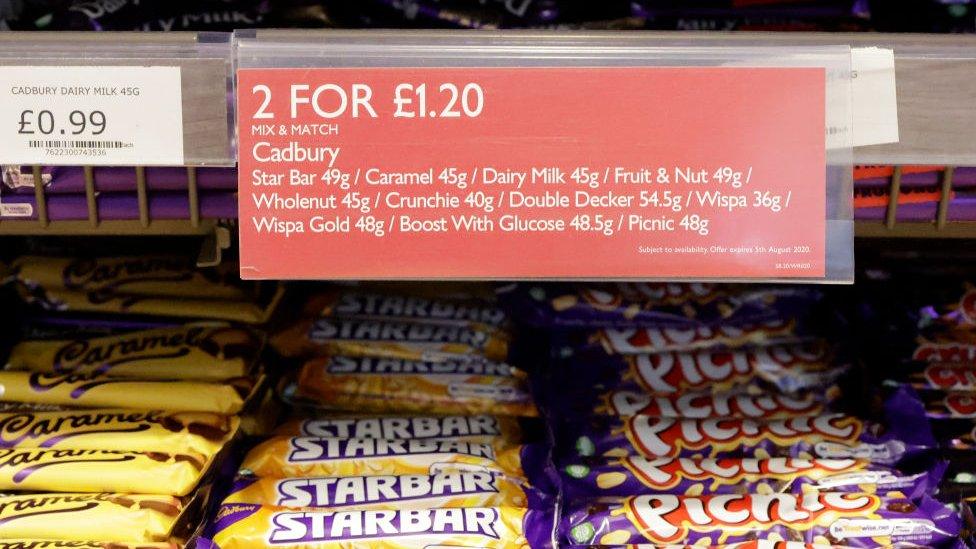Henry Dimbleby: Conservatives' obesity strategy makes no sense, ex-adviser says
- Published
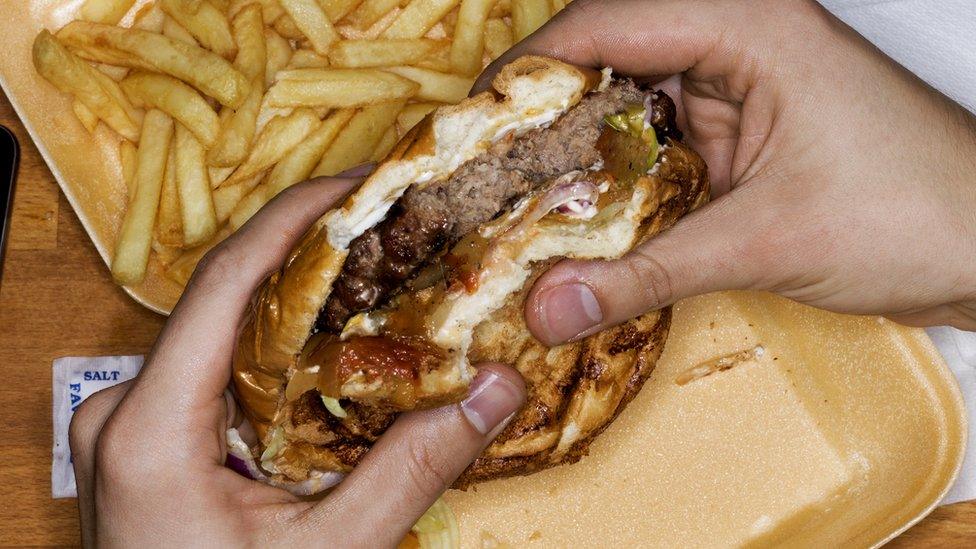
The government's own former adviser has criticised the Conservative Party's approach to tackling obesity, saying it "makes no sense".
Henry Dimbleby announced his resignation as the government's food tsar in the Sunday Times, external.
The co-founder of food chain Leon said ministers had "pulled back" on promises to restrict junk food advertising.
The government said it would continue to work with industry to help people make healthier choices.
Mr Dimbleby said he was stepping back from his role because he wanted to be free to speak out against government policy.
"I think the ideology of the Conservative Party and the way that they are dealing with the problem of diet-related disease makes no sense," he told BBC Radio 4's Today programme.
"In 10 years' time, whatever government is in power they are going to be dealing with huge problems to the NHS, which is going to suck money from the rest of government spending and cause misery from diet-related disease."
He blamed a "feedback loop between companies and their commercial incentives and our appetite", adding that "the government needs to intervene".
But instead, Mr Dimbleby said "this modern Conservative ideology just thinks it can leave everything in the system without any intervention at all", with the government reluctant to be seen as taking a "nanny state" approach.
He argued that voters, including those in so-called Red Wall areas - former Labour seats which the Tories are keen to keep hold of - wanted the government to act because "they're fed up of their children being marketed junk food".
Mr Dimbleby was a non-executive board member at the Department for Environment, Food and Rural Affairs for five years.
As part of his role he conducted an independent review of the food system. The report's recommendations included measures such as taxing the salt and sugar in processed foods, with some of the revenues used to provide fresh fruit and vegetables to low-income families.
However, Mr Dimbleby was critical of the government's response to the review, saying many of his policy recommendations had not been taken forward.
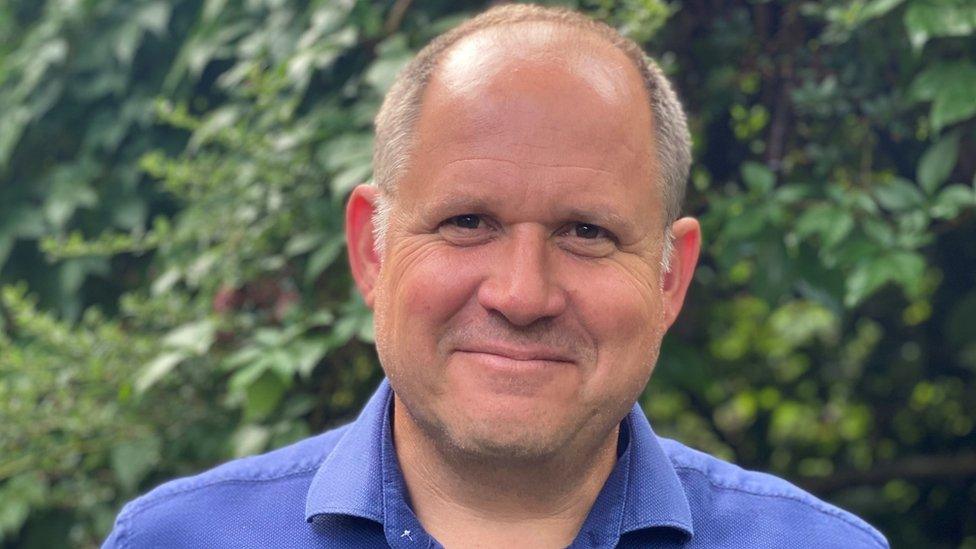
Henry Dimbleby co-founded the restaurant chain Leon
Last year, the government delayed a planned ban on "buy one get one free" offers on unhealthy foods in England until October 2023 to assess the impact on household finances in light of the cost-of-living crisis.
A ban on TV advertising of junk food before 21:00 has also been pushed back to October 2025 to give the industry more time to prepare for the restrictions.
An estimated 26% of adults in England are obese, while a further 38% are overweight, according to the latest NHS figures, external.
A Department of Health and Social Care spokesperson said: "We take tackling obesity seriously and we will continue to work closely with industry to make it easier for people to make healthier choices.
"We recently announced £20m to trial new obesity treatments and technologies to help save the NHS billions, and remain committed to introducing restrictions banning adverts on TV for foods and drinks high in fat, salt, or sugar (HFSS) before 9pm, as well as paid-for adverts online."
- Published14 September 2022
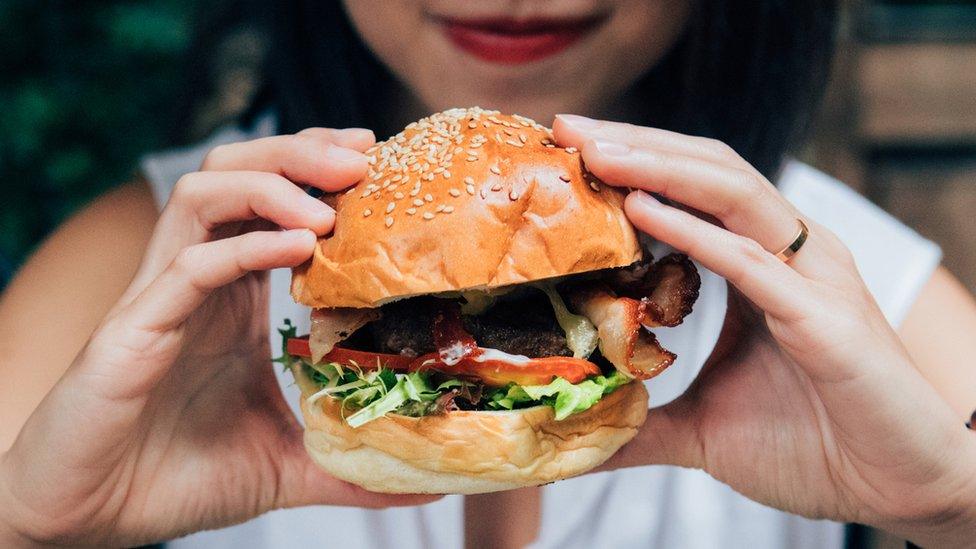
- Published13 June 2022

- Published14 May 2022
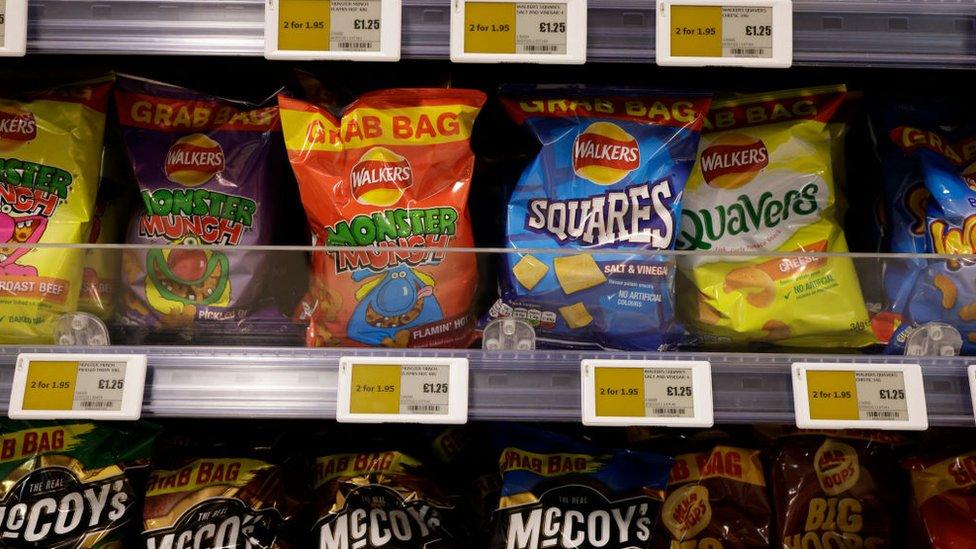
- Published14 May 2022
